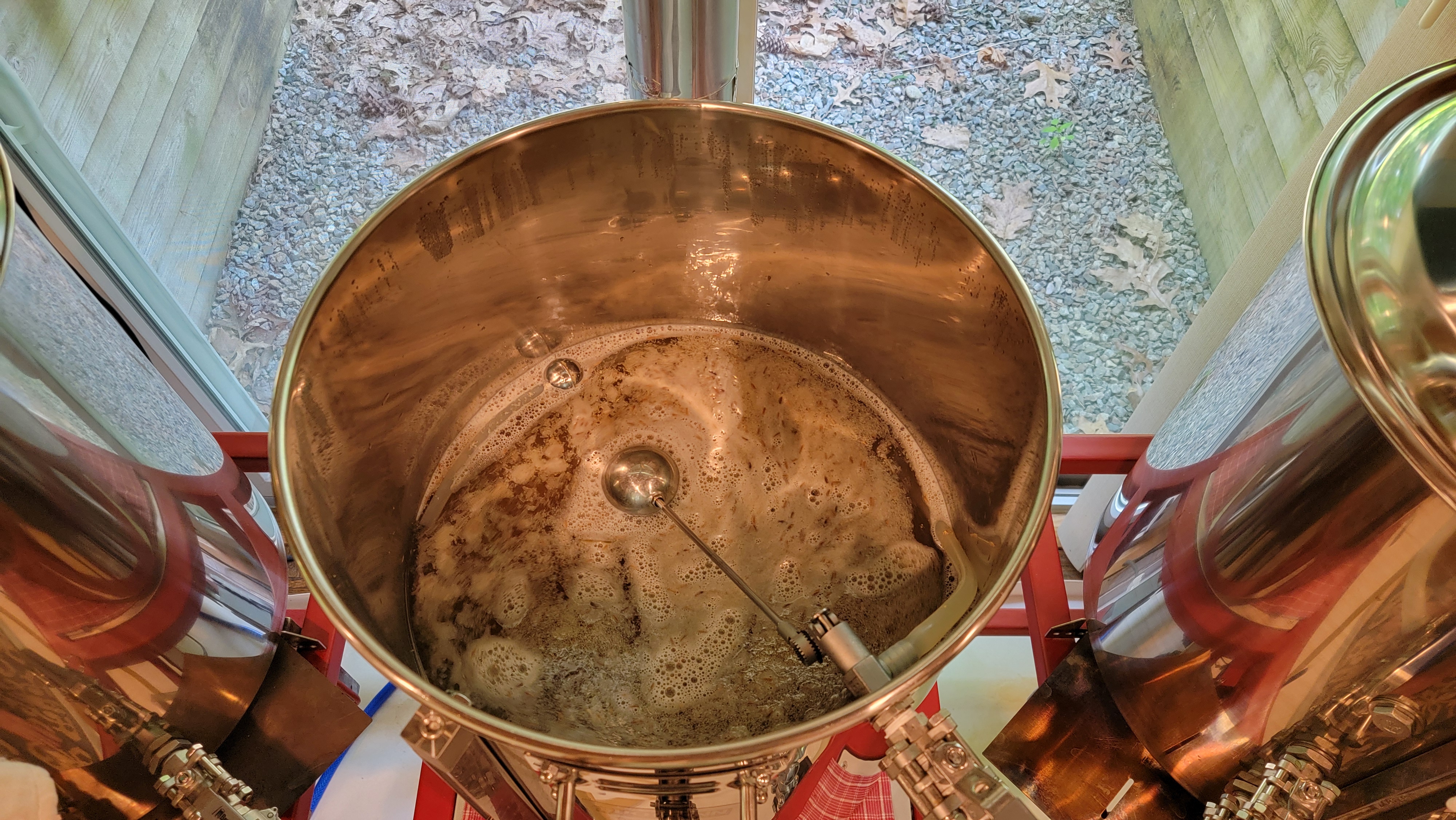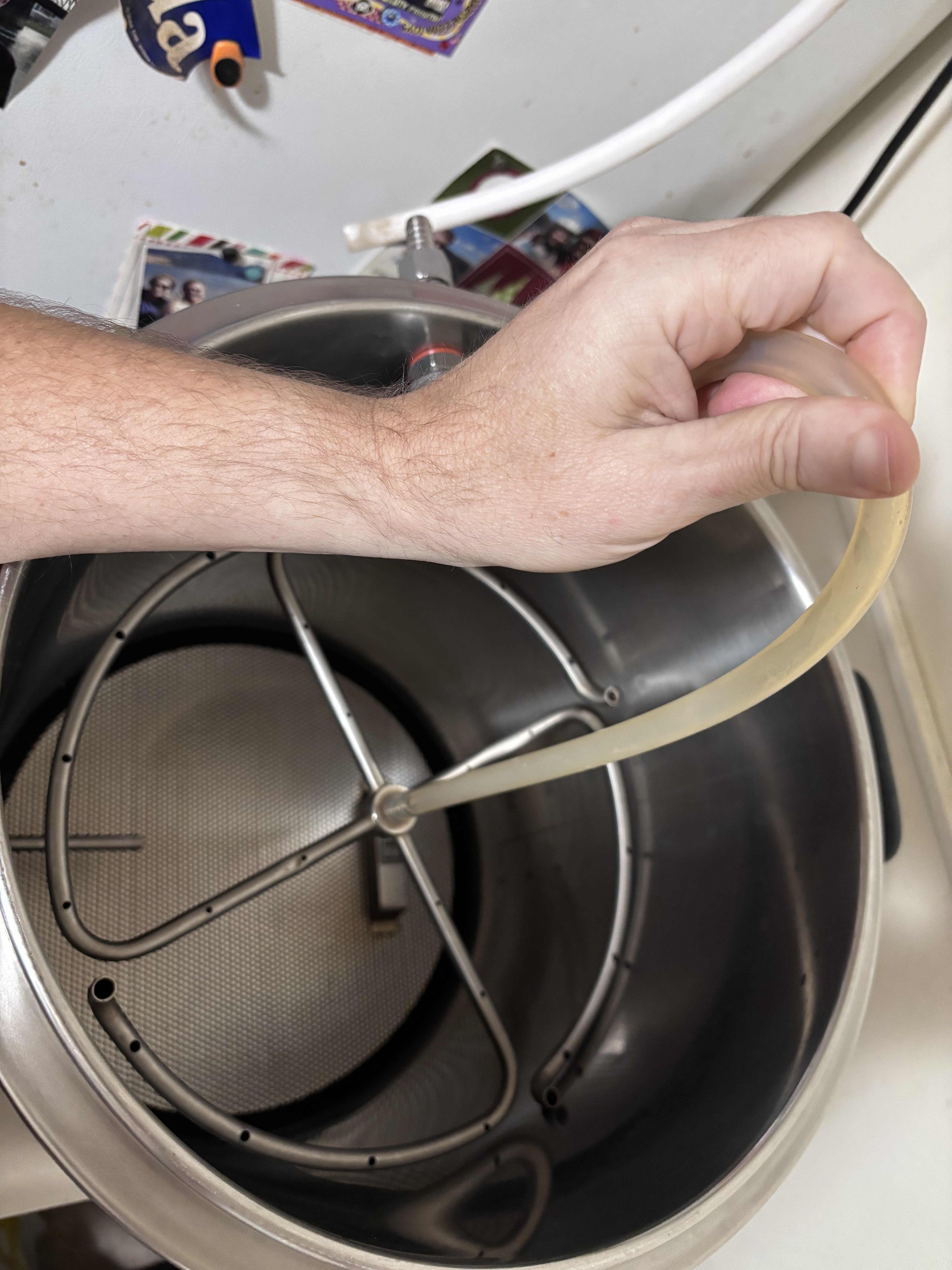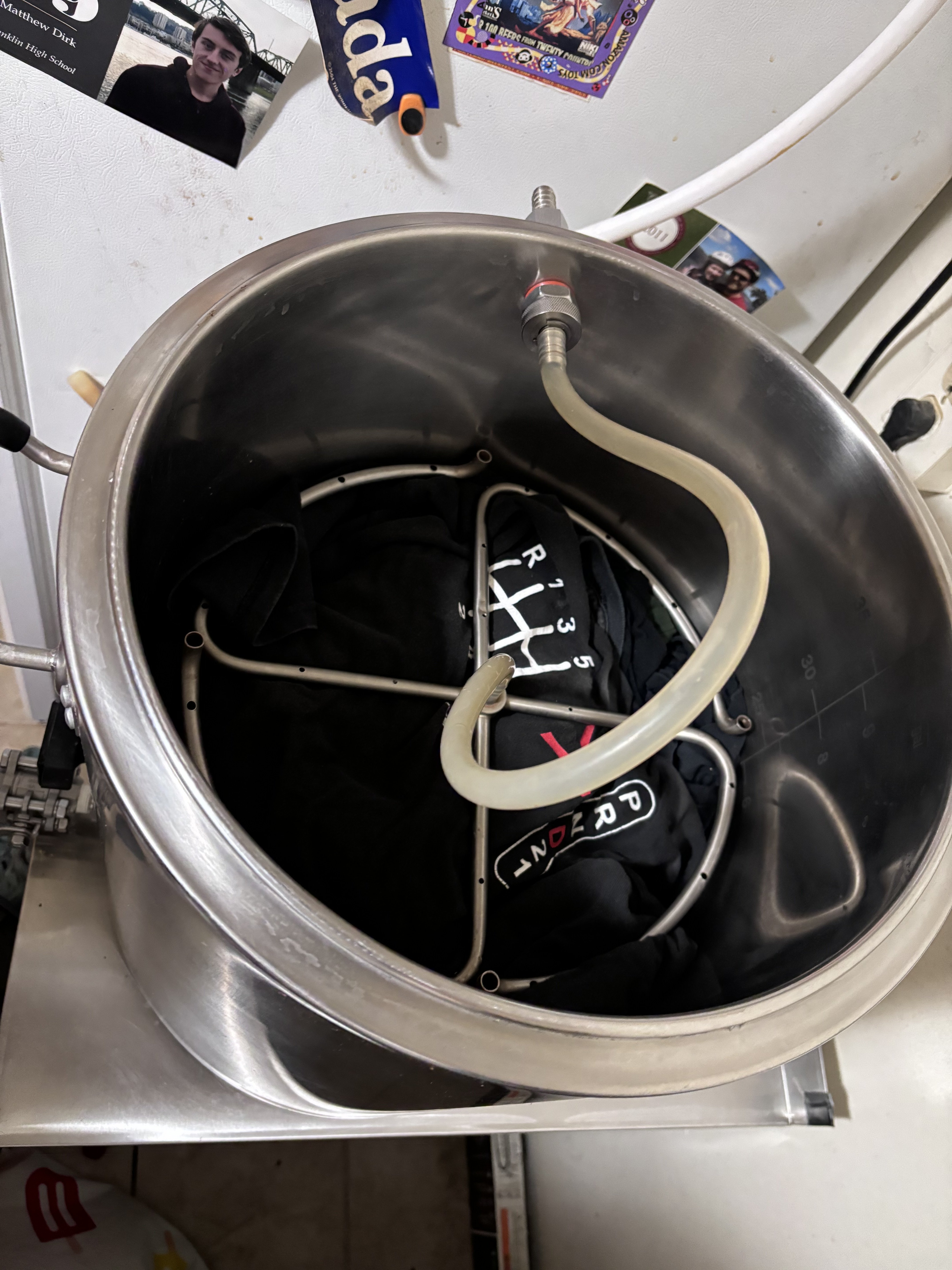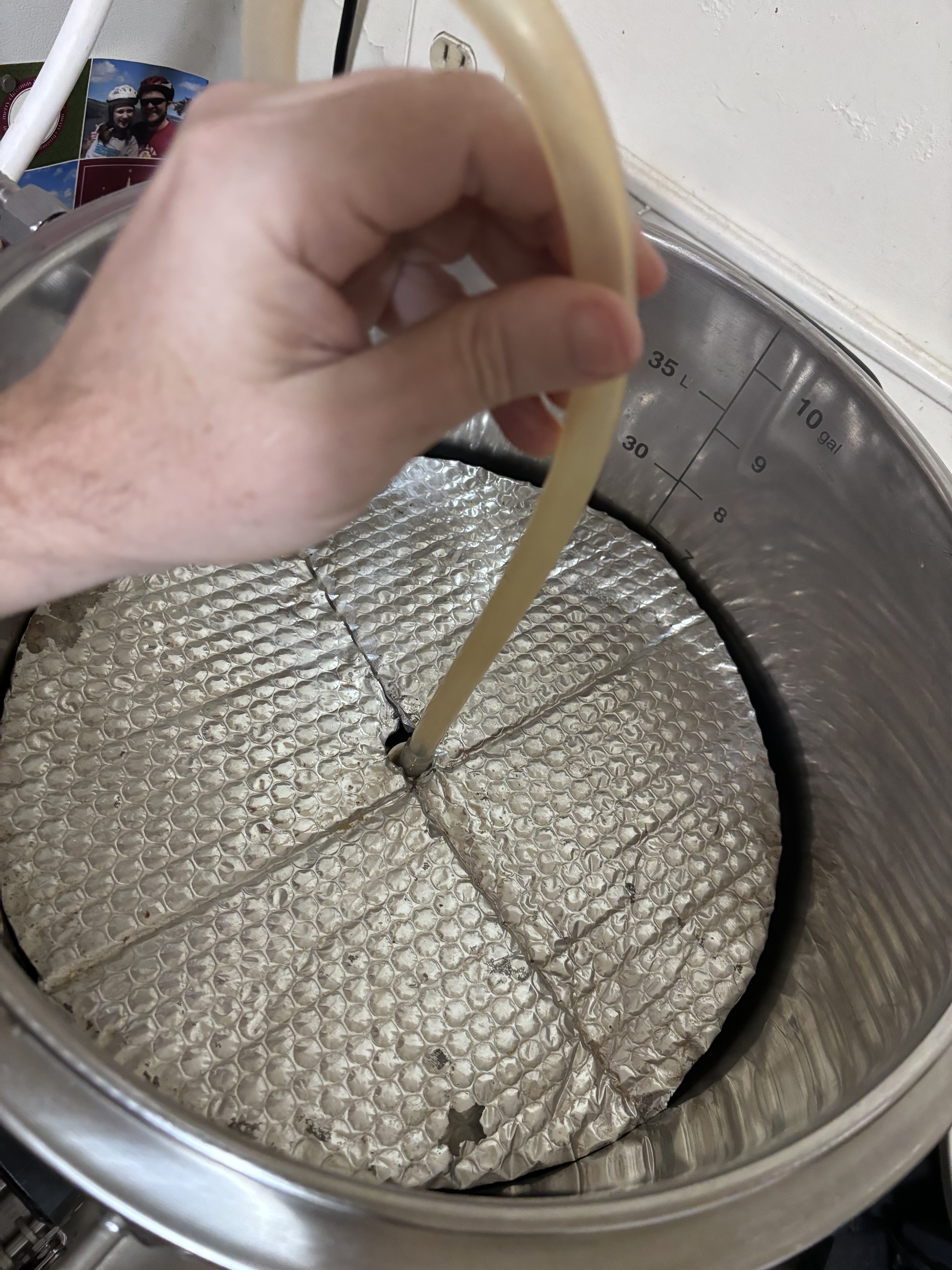Here are a few photos to hopefully clarify Broothru's great answer, Redking.
In LOw Disolved Oxygen (LODO) or Low Oxygen Brewing (LOB) the brewer attempts to minimize the uptake of atmospheric oxygen into the wort because oxygen is a very gregarious element that likes to make friends with other elements and molecules and thereby changes the character of its new friends. LODO/LOB brewers go to great (but easily accomplished) lengths to avoid oxygen pickup. One of the easiest ways to avoid oxygen pickup is to keep your recirculation and sparge manifolds below the surface of your mash, rather than trickling down on top of it in the traditional arrangement.
Here are some photos of my SS Brewtech rig--yeah it's not the same design as a malt pipe all-in-one, but the objective is the same:
These are the components of the rig. At the bottom of the tun is the false bottom, the circular thing that I'm holding up is the recirculation/sparge manifold. The manifold sits on top of the grain bed and below the surface of the wort while in operation, thus greatly diminishing oxygen's penchant for gregariousness.
I brewed earlier today, so I don't have a grist in the tun at present, but I can toss some dirty laundry in there. Let's pretend the dirty laundry is the grist. The manifold sits on top of the grist, but below the surface of your brewing liquor.
Here's where the cap comes in. The cap is placed on top and floats on the surface of the brewing liquor, providing a barrier between the brewing liquor and the gregarious atmospheric oxygen that resides within your mash tun.
For sparging, the arrangement within the mash tun remains the same. The only difference is that the pump is instead hooked up to the HLT (Hot Liqour Tank) to pump a slow flow of sparge liqour into the mash tun.
Don't feel bad if you find this confusing! To be sure, LODO can be quite dense at first glance. Fortunately, the actual practice of LODO is quite easy and adds little more than a rounding error to the time you spend on a brew day.
I hope you found this useful.













![Craft A Brew - Safale S-04 Dry Yeast - Fermentis - English Ale Dry Yeast - For English and American Ales and Hard Apple Ciders - Ingredients for Home Brewing - Beer Making Supplies - [1 Pack]](https://m.media-amazon.com/images/I/41fVGNh6JfL._SL500_.jpg)
















































